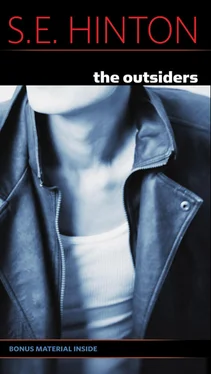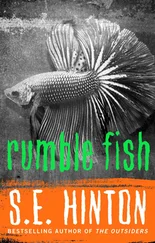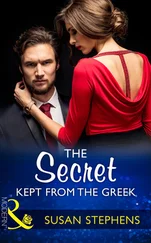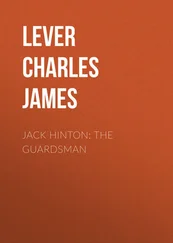I had nearly forgotten that Cherry was listening to me. But when I came back to reality and looked at her, I was startled to find her as white as a sheet.
“All Socs aren’t like that,” she said. “You have to believe me, Ponyboy. Not all of us are like that.”
“Sure,” I said.
“That’s like saying all you greasers are like Dallas Winston. I’ll bet he’s jumped a few people.”
I digested that. It was true. Dally had jumped people. He had told us stories about muggings in New York that made the hair on the back of my neck stand up. But not all of us were that bad.
Cherry no longer looked sick, only sad. “I’ll bet you think the Socs have it made. The rich kids, the West-side Socs. I’ll tell you something, Ponyboy, and it may come as a surprise. We have troubles you’ve never even heard of. You want to know something?” She looked me straight in the eye. “Things are rough all over.”
“I believe you,” I said. “We’d better get back out there with the popcorn or Two-Bit’ll think I ran off with his money.”
We went back and watched the movie through again. Marcia and Two-Bit were hitting it off fine. Both had the same scatterbrained sense of humor. But Cherry and Johnny and I just sat there, looking at the movie and not talking. I quit worrying about everything and thought about how nice it was to sit with a girl without having to listen to her swear or to beat her off with a club. I knew Johnny liked it, too. He didn’t talk to girls much. Once, while Dallas was in reform school, Sylvia had started hanging on to Johnny and sweet-talking him and Steve got hold of her and told her if she tried any of her tricks with Johnny he’d personally beat the tar out of her. Then he gave Johnny a lecture on girls and how a sneaking little broad like Sylvia would get him into a lot of trouble. As a result, Johnny never spoke to girls much, but whether that was because he was scared of Steve or because he was shy, I couldn’t tell.
I got the same lecture from Two-Bit after we’d picked up a couple of girls downtown one day. I thought it was funny, because girls are one subject even Darry thinks I use my head about. And it really had been funny, because Two-Bit was half-crocked when he gave me the lecture, and he told me some stories that about made me want to crawl under the floor or something. But he had been talking about girls like Sylvia and the girls he and Dally and the rest picked up at drive-ins and downtown; he never said anything about Socy girls. So I figured it was all right to be sitting there with them. Even if they did have their own troubles. I really couldn’t see what Socs would have to sweat about — good grades, good cars, good girls, madras and Mustangs and Corvairs — Man, I thought, if I had worries like that I’d consider myself lucky.
I know better now.
AFTER THE MOVIE was over it suddenly came to us that Cherry and Marcia didn’t have a way to get home. Two-Bit gallantly offered to walk them home — the west side of town was only about twenty miles away — but they wanted to call their parents and have them come and get them. Two-Bit finally talked them into letting us drive them home in his car. I think they were still half-scared of us. They were getting over it, though, as we walked to Two-Bit’s house to pick up the car. It seemed funny to me that Socs — if these girls were any example — were just like us. They liked the Beatles and thought Elvis Presley was out, and we thought the Beatles were rank and that Elvis was tuff, but that seemed the only difference to me. Of course greasy girls would have acted a lot tougher, but there was a basic sameness. I thought maybe it was money that separated us.
“No,” Cherry said slowly when I said this. “It’s not just money. Part of it is, but not all. You greasers have a different set of values. You’re more emotional. We’re sophisticated — cool to the point of not feeling anything. Nothing is real with us. You know, sometimes I’ll catch myself talking to a girl-friend, and realize I don’t mean half of what I’m saying. I don’t really think a beer blast on the river bottom is super-cool, but I’ll rave about one to a girl-friend just to be saying something.” She smiled at me. “I never told anyone that. I think you’re the first person I’ve ever really gotten through to.”
She was coming through to me all right, probably because I was a greaser, and younger; she didn’t have to keep her guard up with me.
“Rat race is a perfect name for it,” she said. “We’re always going and going and going, and never asking where. Did you ever hear of having more than you wanted? So that you couldn’t want anything else and then started looking for something else to want? It seems like we’re always searching for something to satisfy us, and never finding it. Maybe if we could lose our cool we could.”
That was the truth. Socs were always behind a wall of aloofness, careful not to let their real selves show through. I had seen a social-club rumble once. The Socs even fought coldly and practically and impersonally.
“That’s why we’re separated,” I said. “It’s not money, it’s feeling — you don’t feel anything and we feel too violently.”
“And”—she was trying to hide a smile—“that’s probably why we take turns getting our names in the paper.”
Two-Bit and Marcia weren’t even listening to us. They were engaged in some wild conversation that made no sense to anyone but themselves.
I have quite a rep for being quiet, almost as quiet as Johnny. Two-Bit always said he wondered why Johnny and I were such good buddies. “You must make such interestin’ conversation,” he’d say, cocking one eyebrow, “you keepin’ your mouth shut and Johnny not sayin’ anything.” But Johnny and I understood each other without saying anything. Nobody but Soda could really get me talking. Till I met Cherry Valance.
I don’t know why I could talk to her; maybe for the same reason she could talk to me. The first thing I knew I was telling her about Mickey Mouse, Soda’s horse. I had never told anyone about Soda’s horse. It was personal.
Soda had this buckskin horse, only it wasn’t his. It belonged to a guy who kept it at the stables where Soda used to work. Mickey Mouse was Soda’s horse, though. The first day Soda saw him he said, “There’s my horse,” and I never doubted it. I was about ten then. Sodapop is horsecrazy. I mean it. He’s always hanging around stables and rodeos, hopping on a horse every time he gets a chance. When I was ten I thought that Mickey Mouse and Soda looked alike and were alike. Mickey Mouse was a dark-gold buckskin, sassy and ornery, not much more than a colt. He’d come when Soda called him. He wouldn’t come for anyone else. That horse loved Soda. He’d stand there and chew on Soda’s sleeve or collar. Gosh, but Sodapop was crazy about that horse. He went down to see him every day. Mickey Mouse was a mean horse. He kicked other horses and was always getting into trouble. “I’ve got me a ornery pony,” Soda’d tell him, rubbing his neck. “How come you’re so mean, Mickey Mouse?” Mickey Mouse would just chew on his sleeve and sometimes nip him. But not hard. He may have belonged to another guy, but he was Soda’s horse.
“Does Soda still have him?” Cherry asked.
“He got sold,” I said. “They came and got him one day and took him off. He was a real valuable horse. Pure quarter.”
She didn’t say anything else and I was glad. I couldn’t tell her that Soda had bawled all night long after they came and got Mickey Mouse. I had cried, too, if you want to know the truth, because Soda never really wanted anything except a horse, and he’d lost his. Soda had been twelve then, going-on-thirteen. He never let on to Mom and Dad how he felt, though, because we never had enough money and usually we had a hard time making ends meet. When you’re thirteen in our neighborhood you know the score. I kept saving my money for a year, thinking that someday I could buy Mickey Mouse back for Soda. You’re not so smart at ten.
Читать дальше












